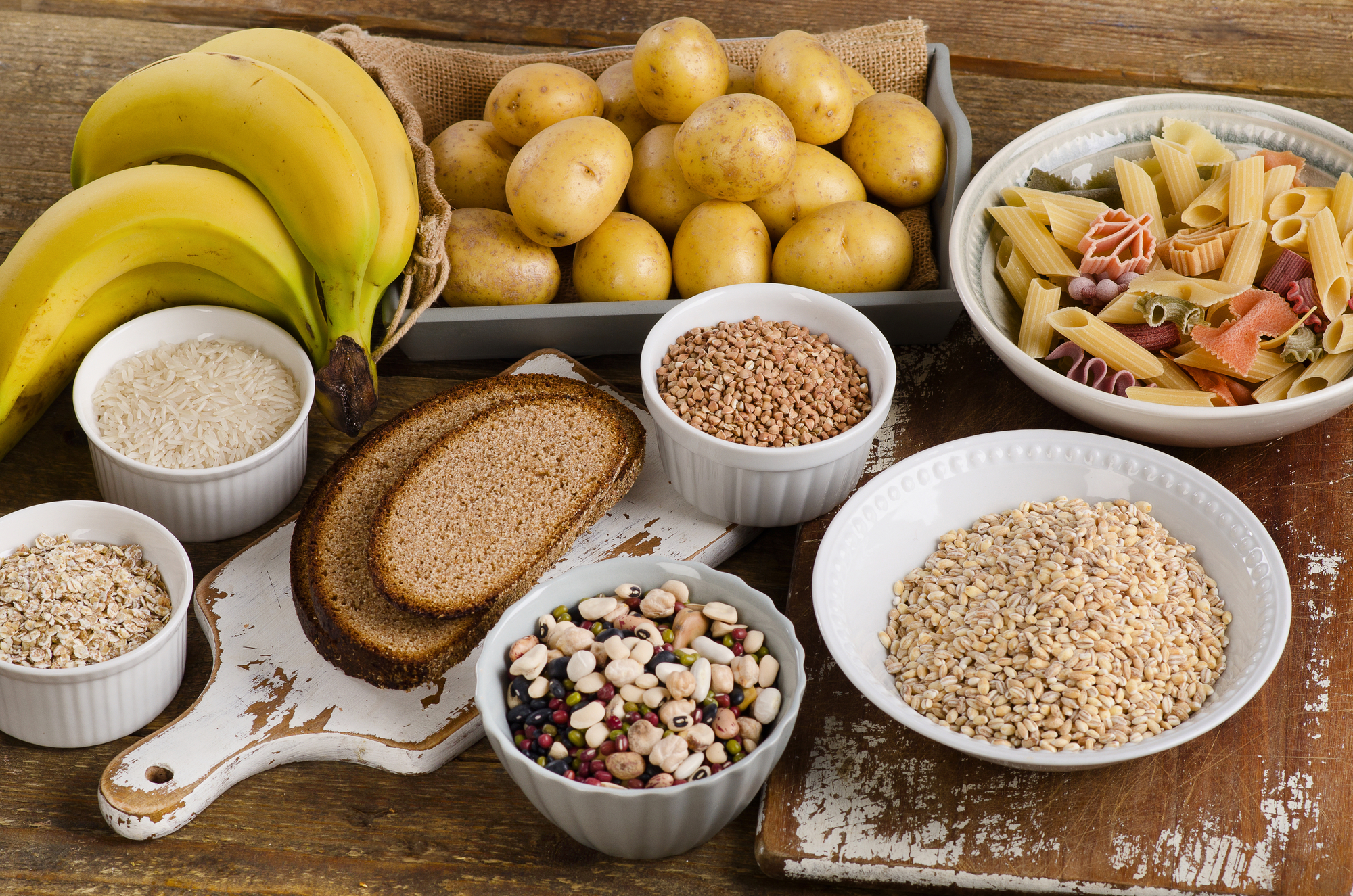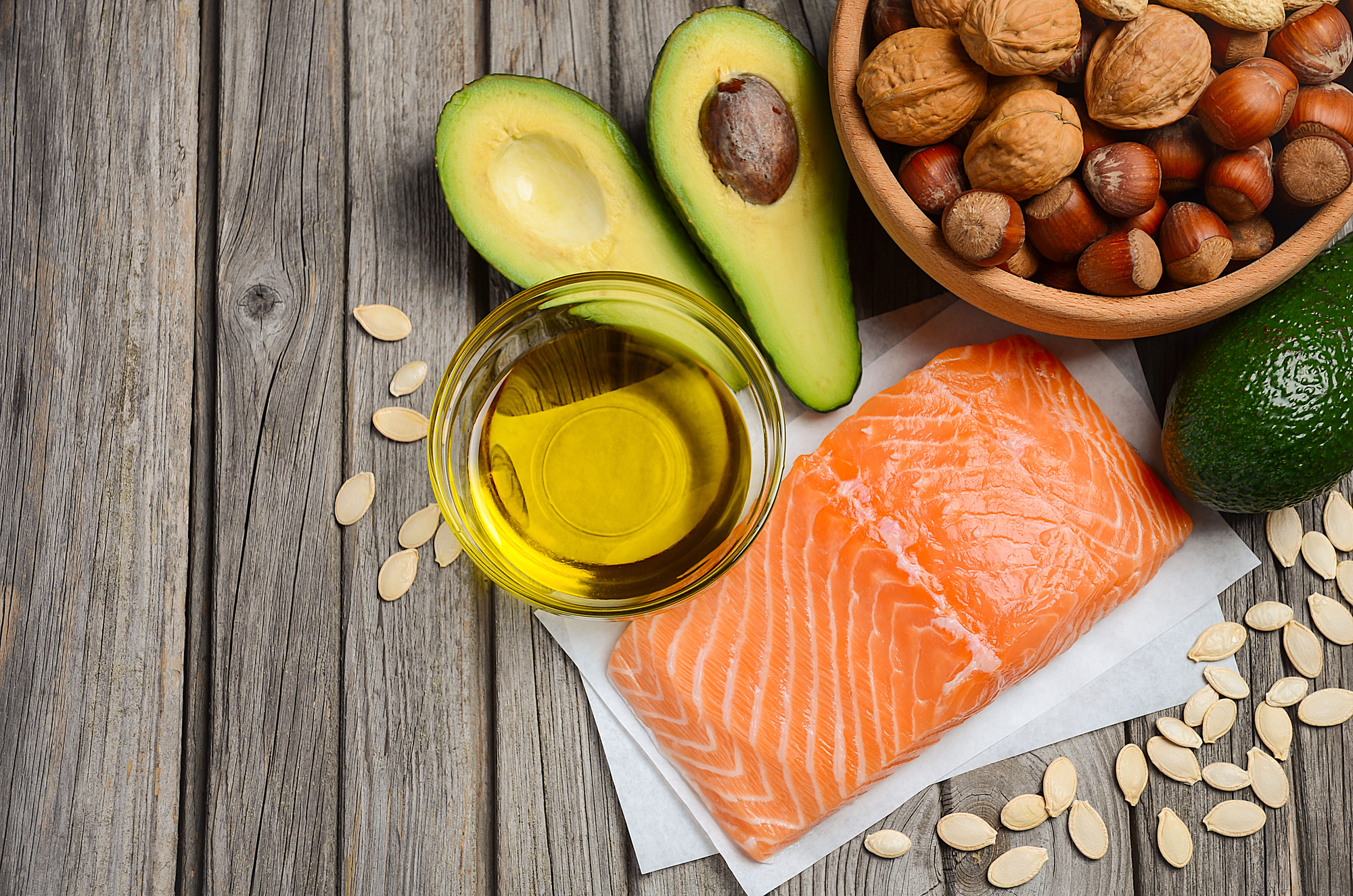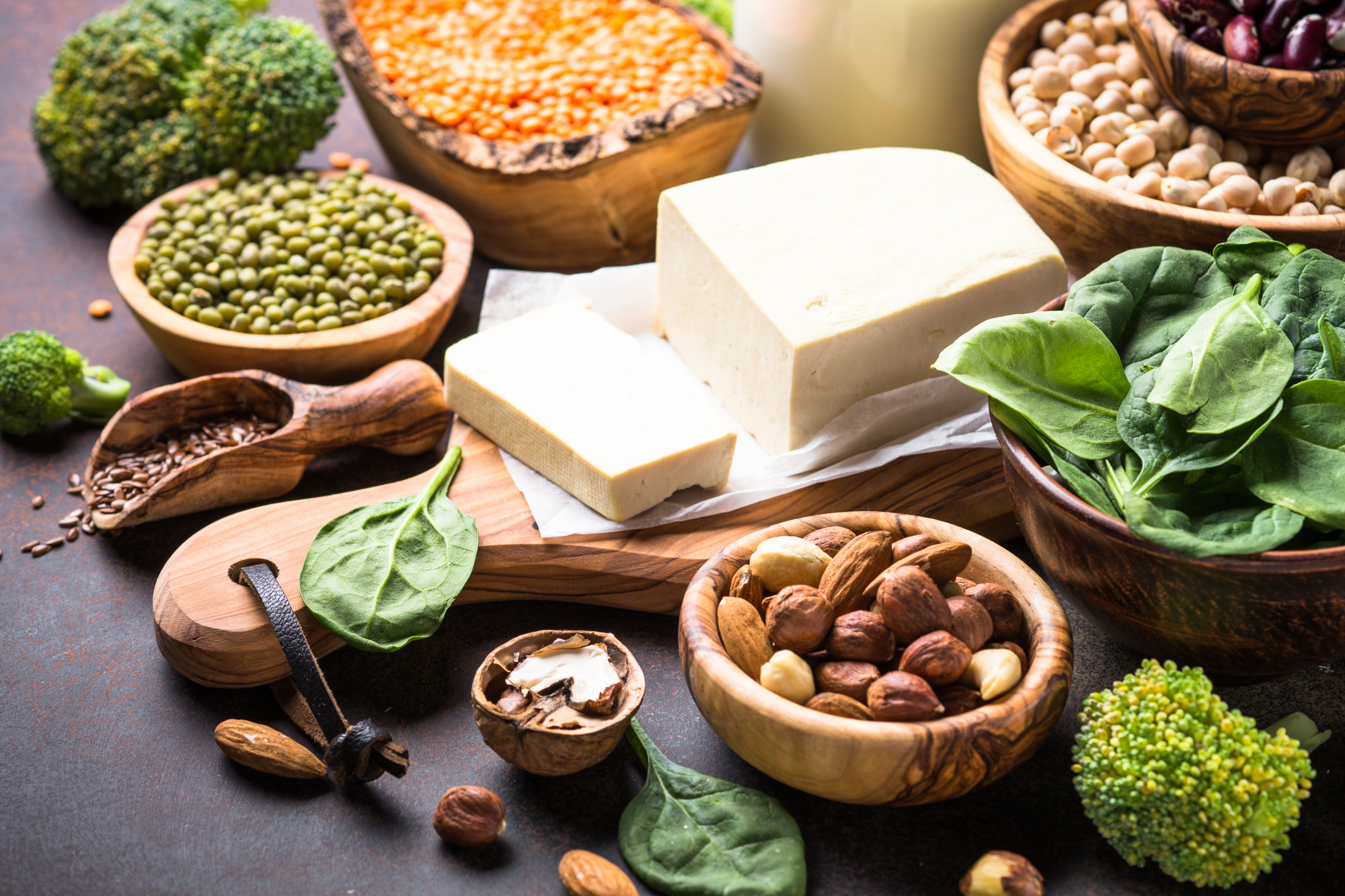Essential Elements of Healthy Eating
The food we eat is made up of nutrients — essential elements needed to fulfill needs of our bodies. There are different types of nutrients and some foods contain several types. Furthermore, some foods have more of one type and less of others. That is why healthy eating means eating a variety of foods every day in order to feed your body with all essential elements needed. These elements include carbohydrates, fats, water, proteins, vitamins, and minerals. Now let us have a closer look at each element and learn more about its impact on our health.
Carbohydrates

Photo by ©bit245/ Depositphotos.com
Carbohydrates are a great source of energy. This energy is converted from glucose that comes to your body with carbohydrates. Glucose itself allows to get a quick energy boost, but your cells can not use it all at once and that is why your body creates a reserve in your muscles and liver known as the reserve of glycogen. So when your body needs energy converted from glucose, it can use this reserve. While having such reserve is natural and healthy, it worth to mention that when it gets full, excess glucose stored in your liver and muscles turns into fat.
There are two types of carbohydrates: simple and complex.
- Simple carbohydrates are sugars. They are called simple because your body can digest them quickly. Simple carbohydrates can be found in soft drinks, cakes, cookies, candy and many other foods that contain a lot of sugar, including alcohol. Although such foods will provide your body with energy, they do not provide you with essential elements and minerals.
Nevertheless, simple carbohydrates can also be found in such fruits as watermelon, banana, persimmon, and grapes. In contrast to cookies and candies, these fruits can feed your body with other essential elements such as vitamins and minerals, so in terms of healthy eating, exactly fruits are preferable.
- Complex carbohydrates, those that require more time to be digested, can be divided into starches and fibers. Fibers help to control cholesterol, clean the intestine from toxins and left-over foods and promote bowel regularity, so these elements are very important in healthy eating. Fibers can be found in such foods as fruits, vegetables, nuts, beans, and whole grains. It is worth to mention, that these foods also contain such essential elements as starches. Nevertheless, these foods contain less starch than, say, potatoes, corn, oats, peas, and rice.
Complex carbohydrates positively impact your health, allow you to maintain your weight and help to prevent such health problems as type 2 diabetes and cardiovascular disease. That is why they are considered to be an integral part of healthy eating.
Fats

Photo by ©JulijaDM/ Depositphotos.com
Fats can be found in such foods as oils, nuts, butter, eggs, cheese, and meats. They provide your body with stored energy, promote the development of the brain and nervous system, help your body to grow, develop and absorb some vitamins. In other words, fats are essential elements of healthy eating. Nevertheless, quite often these essential elements go with a smudge record. It is so because some foods contain too much fat that becomes a reason for obesity, heart disease, arthritis, gallstones, diabetes and some other diseases.
The thing to remember is that fat is your friend as it protects out organs, helps our bodies to stay warm in cold weather, helps hormones to keep blood pressure steady, helps our skin and hair remain healthy, helps to store vitamins in reserve, but you do not need too much of it to get these good things. What is more, not all fats are equal. There are two main types of fat stored in the food we eat: saturated fatty acids and unsaturated fatty acids.
- Saturated fatty acids are stored in animal foods, dairy foods
and some oils that come from plants. This type of fat is often associated with the rise of cholesterol levels and heart attacks.
- Unsaturated fatty acids can be found in plants, fish, and most
plant oils. This type of fat is considered to be the best alternative to saturated fats as it helps to reduce the risk of high blood cholesterol levels. When it comes to healthy eating, unsaturated fats can be divided into two types: polyunsaturated fats that can not be made in the body but provide numerous health benefits and monounsaturated fats that are known to have a cholesterol-lowering effect.
In terms of healthy eating, fat is considered to be one of the essential elements. Nevertheless, you have to avoid eating too much of it.
Water

Photo by ©serezniy/ Depositphotos.com
No less than half of your body is water. Nevertheless, the water is not stored in your body, so it needs to be replaced every day. Water is essential for a number of important processes in your body. It helps to carry nutrients you get from the food you eat to organs, muscles, and bones and aids the digestion. It helps to regulate your body temperature and keeps your skin healthy and hydrated. Water helps you to remove waste products and fat from the body. Also, it lubricates your organs, muscles, and bones and provides them with oxygen. The lack of water can become a reason for dry skin, dizziness or lightheartedness, headaches, rapid and weak pulse, rapid breathing and confusion.
While in the most cases thirst will tell you that you need to drink some water, there are some cases when your body needs it but do not give you that signal. It is when you are ill or exercising. That is why it is important to keep the importance of water in mind and drink it about 2 liters a day. It is worth to mention, that no less than 20% of the water has to come to your body from food. Cucumbers, watermelons, iceberg lettuce, celery, radishes, tomatoes and many other fruits and vegetables are rich in water and, what is more, provide your body with other essential elements such as vitamins and minerals.
Proteins

Photo by ©Nadianb/ Depositphotos.com
Proteins are naturally occurring elements that do most of the work in cells of our bodies. We need proteins because they are responsible for the structure, function, and regulation of tissues and organs. It is worth to mention that in contrast to carbohydrates and fats, proteins are not stored in our bodies. It means that eating proteins on daily basis is important for healthy eating.
In terms of healthy eating, it is important to mention amino acids – essential elements that form different proteins. There are about 21 amino acids that can be divided into two groups: non-essential and essential.
Non-essential amino acids are made by our bodies, while essential ones must be supplied to our bodies with food. These essential amino acids are known as phenylalanine, valine, threonine, tryptophan, methionine, leucine, isoleucine, lysine, and histidine.
Proteins and amino acids can be found both in animal and plant products. Proteins are divided into two types: complete and incomplete ones. Complete proteins are considered to be a better source as they feed your body with all amino-acids needed. Nevertheless, a right mixture of incomplete proteins is also great.
In terms of healthy eating, you can get complete proteins from seafood, eggs, dairy products, soybeans, blue-green algae, hempseed, buckwheat, quinoa. Incomplete proteins are stored in nuts, grains, fruits, and vegetables.
Vitamins
Vitamins, in contrast to carbohydrates, proteins, and fats, do not provide your body with energy. Nevertheless, vitamins are essential elements of healthy eating as they help to boost your immune system, make your bones stronger, help to heal wounds, bolster your eyesight and help your body to get energy from food. In other words, vitamins are essential for optimal body functioning. What is more, numerous diseases such as depression, heart disease, cancer, and osteoporosis can appear due to vitamin deficiency.
There are two types of vitamins: water-soluble and fat-soluble.
- Water-soluble vitamins circulate in your blood. Your body does not store such vitamins, so regular intakes are required. Water-soluble vitamins include eight vitamins B and vitamin C.
Vitamins B are responsible for metabolism in your cells, they boost the immune system and support the nervous system. They also make your skin healthy and are responsible for muscle tone.
Vitamin C is a great source for your immune system. It is responsible for the health of your gums, teeth, bones, and cartilage.
- Fat-soluble vitamins, in contrast to water-soluble ones, can be stored in the body up to 6 months. These vitamins include vitamin A, D, E and K. Each of these vitamins plays an important role.
Vitamin A boosts eyesight and immune system, helps bones to grow and is important for reproduction.
Vitamin D helps our body to absorb calcium needed for the health of bones. This vitamin is a real fighter against depression, cancer, and heart disease. Unfortunately, most of modern Americans have a deficiency of this important vitamin.
Vitamin E, the same to vitamin D, is a good source of protection from cancer, arthritis, heart disease and infections. It is worth to mention that this antioxidant vitamin can be found only in plants.
Vitamin K is essential for blood clotting.
Minerals
Minerals, the same to vitamins, are important elements that help our body remain strong and healthy. Minerals take part in a variety of body functions, including building and strengthening of bones, teeth, muscles and blood vessels, making skin and hair healthier, supporting nerve function and metabolic processes. There are five major minerals human body needs. They are iron, magnesium, calcium, potassium, and zink.
Iron helps to strengthen the immune system and is responsible for carrying oxygen.
Magnesium affects every system in our body as it plays an important role in numerous processes. Its main roles include building and strengthening of bones and muscles and supporting the nerve system.
Calcium is very important for our bones. What is more, this mineral can prevent certain types of cancer, including colon cancer.
Potassium is needed for the building of muscles, supporting nerves and regulating blood pressure. This mineral can decrease the harmful effect of sodium and helps to prevent such diseases as diabetes and heart disease.
Zink helps to reduce the symptoms of flu. Furthermore, this mineral helps to heal wounds and supports reproductive system.


